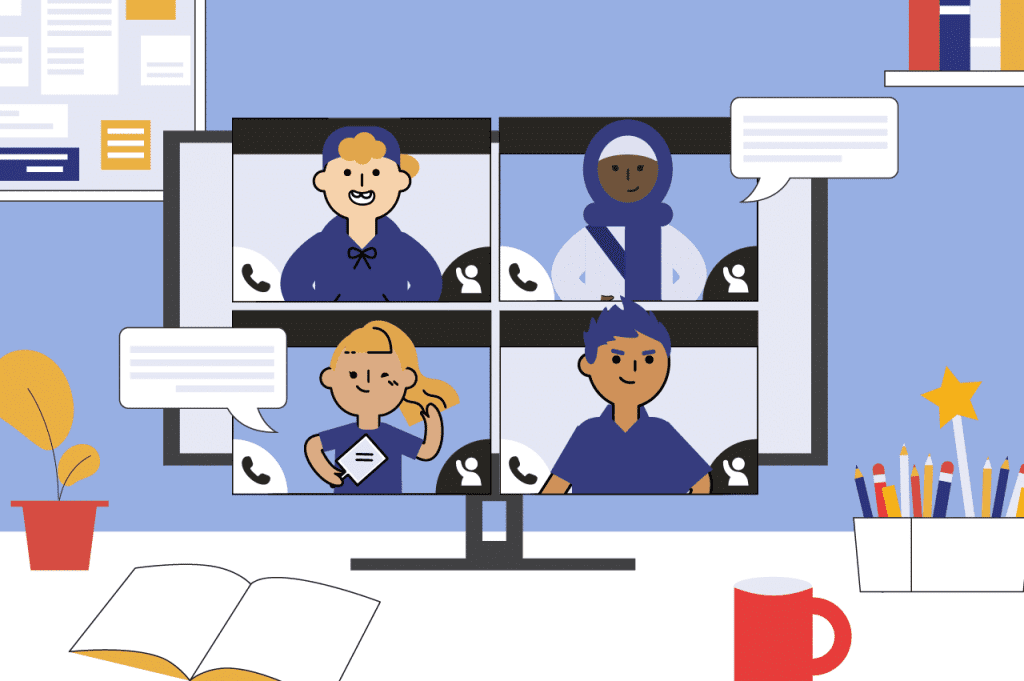As technology transforms the education sector worldwide, virtual classrooms are becoming increasingly essential in bridging the education gap in Africa. The shift toward digital education offers students in both urban and remote areas access to quality learning opportunities. With virtual classrooms, students no longer need to be physically present in a traditional setting—they can connect with teachers and peers from any location, ensuring continuity of learning even during disruptions such as pandemics or natural disasters. Below, we explore the impact of virtual classrooms on the African education landscape and highlight some of the top platforms making this transformation possible.
Why Virtual Classrooms Are Vital in Africa
Several factors contribute to the rise of virtual classrooms across Africa, including:
- Access to quality education: Students in remote areas can now learn from expert instructors in different parts of the country or even abroad.
- Flexibility for students and teachers: Learners can access class materials at their convenience, and teachers can schedule lessons to suit different time zones or student availability.
- Continuity of education during crises: Virtual classrooms became especially critical during the COVID-19 pandemic, ensuring that education continued despite lockdowns.
- Cost savings for institutions: Virtual education reduces the need for physical infrastructure and related costs, making education more affordable.
Key Virtual Classroom Platforms Driving Learning in Africa
1. Google Classroom
Google Classroom is one of the most popular virtual learning platforms in Africa, offering a simple and intuitive interface. With features like assignments, announcements, and Google Meet integration, it provides an organized digital space for teachers to manage lessons and assessments.
- Best For: Schools with access to Google Workspace tools
- Key Features: Assignment tracking, announcements, video meetings, and collaborative workspaces
2. Zoom Education
Zoom Education provides high-quality video conferencing tools, enabling teachers to conduct interactive lessons in real-time. Schools across Africa have adopted Zoom to support live classes, webinars, and virtual meetings.
- Best For: Interactive, synchronous learning experiences
- Key Features: Screen sharing, breakout rooms, polls, and chat options
3. Microsoft Teams for Education
Microsoft Teams offers a comprehensive virtual classroom experience by integrating chat, file sharing, and video conferencing tools. With its built-in OneNote Class Notebook, teachers can create collaborative workspaces and distribute personalized materials.
- Best For: Schools with access to Microsoft 365
- Key Features: Video meetings, file sharing, assignments, and quizzes
4. Moodle
Moodle is an open-source platform widely used for managing virtual classes. It supports asynchronous learning, where students can access course materials, assignments, and quizzes at their own pace.
- Best For: Schools needing customizable virtual learning environments
- Key Features: Course creation tools, discussion forums, quizzes, and multimedia content integration
5. Eneza Education
Eneza Education offers a unique virtual learning experience through SMS-based platforms. Designed for schools in remote areas with limited internet access, Eneza provides quizzes, lessons, and educational content via mobile phones.
- Best For: Schools in rural communities
- Key Features: SMS quizzes, mobile lessons, and offline access
Advantages of Virtual Classrooms for African Schools
- Inclusivity: Virtual classrooms ensure that students with physical disabilities or other challenges can participate fully in education.
- Global exposure: African students can now access international learning opportunities, attend virtual exchanges, or participate in global competitions.
- Parental involvement: With virtual classrooms, parents can monitor student progress and actively support their children’s education.
- Skill development: Students gain experience with digital tools that are critical for future workplaces.
Challenges Facing Virtual Classrooms in Africa
Despite the advantages, there are also challenges in the adoption of virtual classrooms, including:
- Limited internet access: Many rural areas lack the necessary broadband infrastructure to support online learning.
- High cost of data: The cost of mobile data remains a barrier for many students who rely on smartphones for learning.
- Lack of digital skills: Some teachers and students require training to fully utilize virtual classroom tools.
- Power outages: Frequent electricity disruptions in some regions can hinder the delivery of online lessons.
Innovative Solutions to Improve Access
Several initiatives are helping schools overcome these challenges:
- Zero-rated educational platforms: Governments and telecom providers in countries like South Africa, Kenya, and Nigeria offer free access to educational websites and platforms.
- Offline learning tools: Platforms like Kolibri and Eneza Education allow students to access educational content even without internet connectivity.
- Subsidized data bundles: Some telecom providers offer discounted data bundles for students and teachers to support online learning.
- Solar-powered devices: To address power shortages, schools and organizations are adopting solar-powered tablets and routers.
The Future of Virtual Classrooms in Africa
The future of education in Africa will likely be a blend of physical and virtual learning models, offering flexibility and inclusivity. Virtual classrooms will continue to evolve with the introduction of artificial intelligence, virtual reality (VR), and augmented reality (AR), enhancing student engagement and interaction.
Governments, NGOs, and private organizations must collaborate to ensure that all students—regardless of location or socio-economic status—can benefit from digital education. Investing in infrastructure, teacher training, and affordable devices will be crucial for the continued success of virtual classrooms across the continent.
Conclusion
Virtual classrooms have unlocked new opportunities for students across Africa, making education accessible beyond the traditional classroom. With platforms like Google Classroom, Moodle, and Zoom, and innovative solutions like Eneza Education for low-bandwidth areas, schools are better equipped to deliver quality education remotely. While challenges like internet access and power outages remain, ongoing efforts to improve digital literacy and infrastructure will ensure that virtual classrooms play a significant role in the future of African education.























